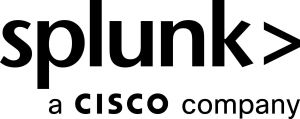ESXi host version identification
A report of the versions of VMWare ESXi actively running within your virtualization environment can help you identify version inconsistencies or older versions in need of upgrade.
Data required
- VMware. This procedure depends on data primarily obtained from the Splunk Add-on for VMware Metrics; however, log and event data from the VMWare environment can also provide additional insights into general VMWare environment health. Therefore, for best performance, you should also download and install Splunk Add-on for VMware ESXi Logs and Splunk Add-on for vCenter Logs.
Procedure
- Ensure that you have installed the IT Essentials Work app to onboard VMware data and provide the various VMware entity type configurations and dashboards.
- Ensure that you are collecting VMware data through one or more Data Collection Nodes, which are essentially Splunk heavy forwarders with specific VMware collection configurations.
- Run the following search. You can optimize it by specifying an index and adjusting the time range.
| mcatalog values(os_version) AS esxiversion WHERE index=vmware-perf-metrics AND entity_type=vsphere.esxihost BY name | dedup name sortby - _time | stats count BY esxiversion
Search explanation
The table provides an explanation of what each part of this search achieves. You can adjust this query based on the specifics of your environment.
| Splunk Search | Explanation |
|---|---|
| mcatalog values(os_version) AS esxiversion WHERE index=vmware-perf-metrics AND entity_type=vsphere.esxihost BY name |
Search VMWare metric indexes for ESXi version values by ESXi host. |
|
|
Remove duplicate ESXi hosts from the results. |
| stats count BY esxiversionmoid="*" |
Provide a count of the results, sorted by version ID. |
Next steps
Upgrade versions as needed.
Additionally, you might be interested in other processes associated with the Monitoring VMware virtualization infrastructure use case.

